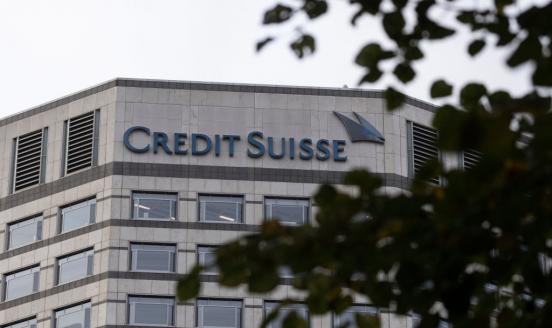A sunset clause for Europe's banking union
Europe is determined to move ahead quickly with a banking union, after EU leaders gave it the green light at summits in June and October. Most of the discussion is focused on the supervisory mechanism while work on bank resolution is still in its infancy. A strong central supervisor will certainly be of great importance in overcoming the crisis around the euro. On 12 September, the European Commission published its proposal for the single supervisory mechanism, which would give the European Central Bank substantial supervisory powers. The October summit agreed to move ahead with the proposals and discussions now focus on how to improve the proposal. However, the proposal has shortcomings. These arise because of the Commission and EU Council choose to base the proposal on Article 127(6) of the EU Treaty, which requires the ECB governing council to take the ultimate supervisory decisions.
First, parliamentary control is limited by the independence of the euro-area central bank governors. Supervisory decisions have major repercussions for taxpayers, and bank shareholders and employees. It is therefore of vital importance that the European Parliament and national parliaments have control rights over supervisory decisions. The current compromise proposals allow for some parliamentary control of the supervisory board under the ECB governing council. Yet decisions will ultimately be made by the governors. While the governing council is independent when it comes to monetary policy decisions, it is impossible to hold the same people to account for supervisory decisions. Ultimately, supervisory decisions cannot therefore be fully controlled by the parliaments in the current set-up.
Second, giving the final say to the ECB governing council means that non-euro area countries can be outvoted more easily. In fact, a majority in the supervisory board, in which non-euro area countries would have a voice, may become a minority in the governing council and vice versa. This makes it less attractive for non-euro area members to join the supervisory mechanism. While the UK has already declared that it does not want to join, for many central and eastern European countries this is a major problem. Countries such as Poland or Hungary that have banking systems that are highly integrated with the euro area will be put at a significant disadvantage compared to banks in the euro area. Home-host issues are a deep concern. The single supervisory mechanism without those countries participating may undermine European integration with central and eastern Europe – arguably one of the most important achievements of the EU.
A third often-voiced criticism is that monetary policy independence may be undermined by supervisory decisions. The concern is that because of difficulties in banks, monetary policy will err on the dovish side in order to avoid taking tough supervisory decisions. This concern seems to be somewhat overstated. In fact, monetary policymakers are fully aware of difficulties in banks in any case. Right or wrong, the difficulties of individual banks will be taken into account in their decisions. Nevertheless, a combination of the two functions in one is not optimal and increases the potential conflict of interest.
A fourth criticism is that the current Treaty base excludes the insurance sector. Problems such as those that emerged at AIG call for a stronger supervision with a greater focus on the cross-border activity not only of banks but also insurers. In any case, the distinction between banking and other financial services is rather blurred. The possibility to extend European supervision beyond banks is therefore warranted.
The final shape of the European banking union should therefore look differently from what is currently on the table. It should be based on a strong supervisor who can be held to account by a strong parliament, but who takes decisions independently of monetary policy. It should have the legal scope to go beyond narrow banking. Most importantly, it should allow an equal say to non-euro area countries wishing to join the mechanism and the euro area. Finally, it should have a clearly defined link to the necessary common fiscal resources and to the European authority responsible for banking resolution. Article 127(6) puts severe limits on the shape of an optimal banking union.
It is not the right moment now to come up with completely new proposals. Europe needs to show its resolve to move forward with further integration and a single supervisor is urgently needed to stop national approaches to supervision that are fragmenting the euro-area financial market. The new structure should, however, be provisional. European legislators would therefore be well advised to include a sunset clause in the new regulations forcing Europe back to the drawing board.



